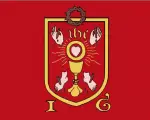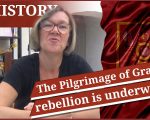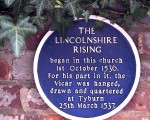
On this day in Tudor history, 4th October 1507, Sir Francis Bigod, was born at Seaton, in Hinderwell, Yorkshire.
Bigod led an uprising in Yorkshire in January 1537, Bigod’s Rebellion, after the rebels of the Pilgrimage of Grace had been dispersed. But who was Bigod? Why would an evangelical reformer become involved with the Pilgrimage of Grace? What was his rebellion about and what happened to him?
Find out more about Sir Francis Bigod and Bigod’s Rebellion…
[Read More...]

